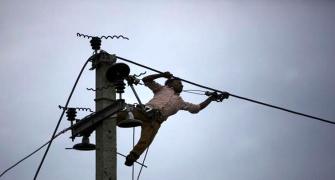Declarations made will remain confidential as in the case of return of income filed by an assessee

The black (unaccounted) money declarants will be liable to capital gains tax on future asset sale, despite paying tax, penalty and cess under the domestic black money compliance window, the government clarified recently.
The clarification was part of the 14 frequently asked questions (FAQs) it released 10 days ahead of opening the window. However, holding period of the asset for capital gains will be counted from June 1, it said.
The Income Declaration Scheme, 2016, gives a chance to domestic tax payers to declare undisclosed income or assets and avail immunity from penalty and prosecution by paying tax, a penalty and a cess aggregating 45 per cent. This includes tax rate of 30 per cent, besides Krishi Kalyan Cess and penalty.
The Central Board of Direct Taxes (CBDT) released the first set of FAQs to dispel doubts related to the scheme. The scheme requires declaration of undisclosed asset at its fair market value (FMV) as on date of commencement of the scheme and will be regarded as the cost of acquisition of the asset for any subsequent transfer.
For cases where investment in an asset is partly from undisclosed income, the government clarified that the fair market value of the asset would be determined by deducting the part for which assessment was made during asset purchase.
The government clarified that in cases where search and survey has been completed but certain income was neither disclosed nor assessed, can also be declared under the compliance window.
In case only part income is declared by the black money holder, the person will get immunity for the income declared and will not be immune for the sum not declared, CBDT has said.
“It is expected that one should declare all his undisclosed income. However, in such a case the person will get immunity in line with the provisions of the scheme in respect of the undisclosed income declared,” it said.
Income from corruption
The CBDT also clarified that people who have earned money through corrupt practices would not be eligible to take advantage of the domestic black-money disclosure scheme.
It said that the scheme will not apply in relation to prosecution of any offence punishable under the Prevention of Corruption Act, 1988.
"Therefore, declaration of such undisclosed income cannot be made under the scheme," it said, adding such declaration will amount to misrepresentation of facts and, hence, void.
The FAQs assured black money holders that declarations made will remain confidential as in the case of return of income filed by an assessee.
In the Budget, the government had come out with a similar compliance window for people holding undisclosed assets abroad. Disclosures during that window were charged with a total tax and penalty of 60 per cent. The exchequer received Rs 2,428.4 crore (Rs 24.28 billion) in payments from disclosures worth Rs 4,147 crore (Rs 41.47 billion) made during a three-month compliance window that ended September 30.
Photograph: Adnan Abidi/Reuters










